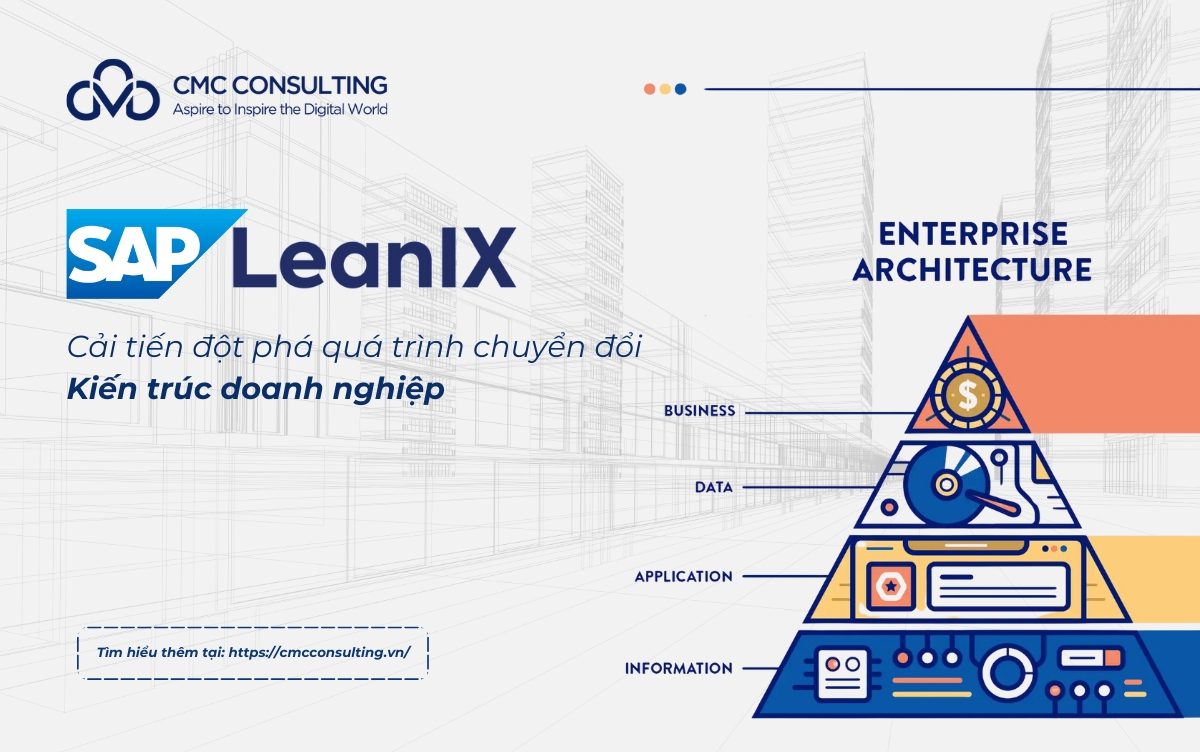Today, warehouse and supply chain management experts are facing more challenges than ever. Emerging trends in omnichannel retail, consignment inventory, and the complex global supply chains are placing additional pressure on warehouses to increase throughput, reduce costs, and shorten inventory cycles. Furthermore, the ongoing impact of external factors such as the Amazon and the Bullwhip effect has driven the trend toward warehouse automation, aimed at optimizing warehouse, management, and inventory processes.
With the rapid development of 4.0 Industry, the modern Warehouse Management System (WMS) has emerged as a powerful tool to tackle these challenges, helping businesses manage their warehouses professionally, optimize costs, enhance operational efficiency, and alleviate both internal and external pressures from the supply chains.
1. What is a Warehouse Management System (WMS)?
Warehouse Management System (WMS) is a solution designed to assist businesses in warehouse operations and monitor all movements of goods across the entire warehouse system and storage areas.

Freeing Labor - Enhancing Productivity with WMS
WMS integrates seamlessly into all operational and management processes of warehouses: from receiving raw materials, managing production stock, and finished goods to inventory control, packing, and shipping. It is fully compatible and can integrate with ERP systems to respond to operational needs, boosting the efficiency of sales, purchasing, and production manufacturing, helping businesses accurately plan material requirements, production timelines, and delivery schedules.
The WMS includes several smaller systems, such as the Inventory Management System (IMS), Sorting Management System (SMS), Equipment Control System (ECS), and Warehouse Control System (WCS), collectively referred to as the Logistics Data System.
2. WMS - A Powerful Assistant for Enterprises
Designed to help businesses eliminate barriers and challenges in warehouse and distribution center operations in the era of e-Commerce and Lean manufacturing, WMS boasts numerous superior features to meet the needs of various types of production, trade, and logistics warehouses:
- Receiving Management: Ensures that goods are received accurately and efficiently, managing receiving, sorting, labeling, layout strategies (location, area, cargo type, etc.), quality control, and returns. It also organizes goods by batches interspersed with aisles to minimize errors and provide precise inventory information.
- Shipping Management: Facilitates the coordination and management of shipping processes from the warehouse, with outstanding features like shipping management, effective picking strategies based on pre-established rules (LIFO, FIFO, FEFO), picking instructions, packing, and shipping. This gives businesses a comprehensive view of the transportation process, preventing shortages and incorrect shipments.
- Warehouse Management: WMS combines with business management software and employs advanced technologies like the Internet of Things (IoT), handheld devices with barcodes, and Radio Frequency Identification (RFID), enabling businesses to track and control inventory accurately with real-time information about stock levels from receiving new goods to updating inventory counts during shipping and receiving.
- Logistics Service Management: This feature provides tools for managing transportation services in the warehouse, including consignment, fulfillment services, transportation, integrating service providers, and Value Added Services (VAS), thereby enhancing the transparency of the company’s transportation control processes.
- Optimized Design and Storage Space: With a "smart warehouse," the allocation of goods becomes easier and more convenient. The warehouse management system provides intelligent stacking methods based on item type, size, and usage frequency, helping managers calculate and set up appropriate shelving to maximize warehouse space, thereby simplifying the shipping, receiving, and inventory processes.
- Basic Features: The ability to manage a network of warehouses, partition warehouse locations, and trace inventory helps businesses monitor and manage warehouses from a central system, arranging goods appropriately based on priority, type, and storage conditions, thus enhancing management efficiency, optimizing inventory, and ensuring accuracy and transparency throughout the logistics process.
- Supplementary Features: The smart warehouse system is equipped with additional capabilities to support businesses in warehouse management processes, including inventory planning, workforce management, advanced analytical reporting, and support for barcodes, QR codes, RFID tags, and mobile devices (Android, Handheld), and integration with smart warehouse systems. This boosts productivity, minimizes costs, and maximizes warehouse operational efficiency.
3. Benefits of the WMS
The outstanding benefits of the WMS provide a competitive advantage for businesses in the market:

WMS and superior benefits
- Optimizes Warehouse Management Processes: Helps streamline warehouse management processes to enhance operational efficiency and productivity.
- Flexible Deployment: The software can be deployed on-premises or in the cloud, enabling businesses to manage detailed inventory data, track and record movements in the warehouse, and execute production orders accurately and efficiently.
- Reduces Material Shortages: Minimizes the risk of material shortages without overstocking, thus reducing inventory costs and the pressure on working capital while improving service quality.
- Reliable Data Synchronization: Automatically synchronizes reliable data across the warehouse, production, sales, and financial accounting. It automatically evaluates all warehouse transactions and recalculates cost prices and selling prices, eliminating the need for manual operations and discrepancies in cost calculations.
- Optimizes Material Requirement Planning: For manufacturing businesses, the software helps plan material requirements for complex multi-level production processes while maintaining optimal inventory levels. Integrating resource data with BOM data provides insights into production requirements, improving production and accounting costs, and identifying bottlenecks.
- Real-Time Data Updates: Ensures that reporting functions provide accurate insights, allowing businesses to meet customer demands and expectations precisely.
Overall, the Warehouse Management System (WMS) is an advanced warehouse management solution with a comprehensive ecosystem of features capable of quickly processing and analyzing data transparently. Thus, adopting WMS will help businesses enhance their competitive edge in the market and achieve sustainable growth in the future, especially for those operating in manufacturing and logistics, where synchronization and accuracy are crucial.
With over a decade of experience, CMC Consulting is a leading provider of ERP consulting and implementation solutions. With a team of knowledgeable experts with practical experience in the field, we are committed to advising and providing effective ERP solutions at competitive prices tailored to the scale and needs of each client.
Register for consultation and demo of ERP tailored for the manufacturing industry here.




 Ngọc Quyên
Ngọc Quyên 02/06/2023
02/06/2023
















